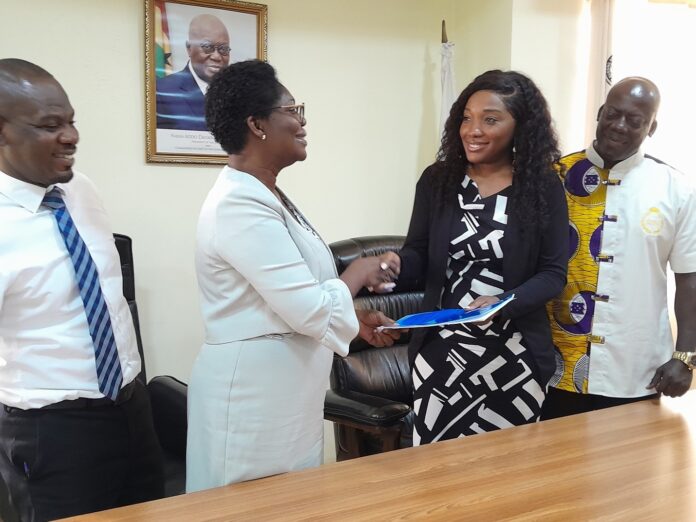
The Nurses and Midwifery Council (NMC) has joined forces with the Ghanaian Diaspora Nursing Alliance (G-DNA) to entice second-generation Ghanaian nurses living abroad to return home, in a collaboration aimed at revitalising the healthcare system.
This initiative seeks to eliminate barriers and attract skilled nursing professionals to contribute actively in the country’s healthcare delivery.
A memorandum of understanding (MoU) between NMC and G-DNA to this effect was officially signed in Accra, ushering in a new era of collaboration.
Notably, the agreement grants returning nurses exemption from the usual entrance exam requirement for registration with the regulator – as emphasised by Philomena Woolley, Acting Registrar of the Nurses and Midwifery Council.
Speaking in an interview with journalists during the MoU signing ceremony, Mrs. Woolley stated: “This collaboration is designed to encourage the return of second-generation nurses and those who have been trained abroad, or have lived in the diaspora for an extended period. Our goal is to facilitate their registration with the Nurses and Midwifery Council Ghana”.
Highlighting the benefits of this collaboration, she emphasised the wealth of expertise these returning nurses bring back to Ghana. The collaboration anticipates the participation of over 1,000 nurses living abroad, with the ultimate aim of enhancing the country’s healthcare delivery system.
President and co-founder of G-DNA, Dr. Yvonne Commodore-Mensah, expressed the organisation’s commitment to easing barriers for returning nurses.
She stated: “The ‘brain-drain’ phenomenon of Ghanaian nurses leaving the country annually contrasts with the potential for ‘brain-gain’. G-DNA aims to facilitate the return of skilled nurses to strengthen healthcare training and practices in Ghana”.
Furthermore, she noted that G-DNA’s collaboration with NMC goes beyond exam-waivers, extending into research, evidence-based practices and capacity building. With a global membership of over 1,500, she added, G-DNA seeks to support nursing education in Ghana through fundraising and grants; focusing on institutions like the Ghana College of Nurses and Midwives.
Also, the Co-director of Education at G-DNA, Dr. Daniel Kwame Apau, emphasised the diverse pathways available for nurses under the MoU. He urged stakeholders, including physicians and the Ghana Medical Association, to collaborate with nurses for seamless healthcare delivery.
The collaboration’s incentives include foreign-trained Ghanaian nurses contributing their expertise to training institutions, universities, health centres and Community Health Planning and Services (CHPS centres).
The MoU, effective for two years, aims to inform and encourage nurses to return and help their country while fostering ongoing collaboration and the adoption of best practices in healthcare delivery.
The groundbreaking partnership between NMC and G-DNA holds promise for revitalising Ghana’s healthcare sector, reinforcing the critical role of nursing in healthcare delivery.









